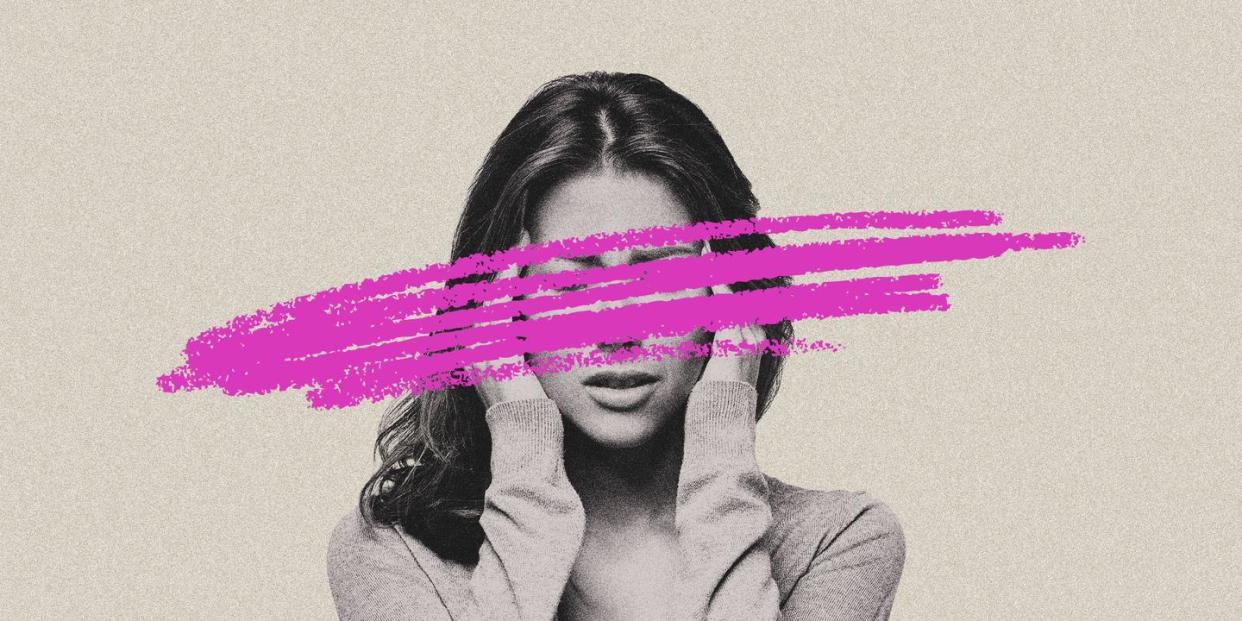OCD, the Coronavirus Freakout, and Me

You get home from work and walk through the door. Your house is the Zone of Least Contamination, and the outside world is the Zone of Full Contamination. All day long you’ve been forced to interact with keyboards, doorknobs, subway poles, and handshakes. You’ve stood in the same air as strangers, cringing in agony as sloughed off skin cells and droplets of spittle fly off their bodies and into your shared space. If you live in a densely populated city, you’ve been forced to press your body up close to theirs and breathe in shared, stale air.
This is a normal day if you have Obsessive Compulsive Disorder like I do, a disease that’s still widely misunderstood and parodied in culture. Now imagine those painful, intrusive thoughts—every cell in your body feeling swollen with contagion, the crushing fear that if you don’t spend three hours decontaminating yourself and your house you’ll actually die—compounded by the coronavirus pandemic, which seems like the ultimate validation of all your obsessive tendencies.
What exactly happens to the obsessive-compulsive mind in the midst of a global pandemic, when a fear of germs and contamination suddenly seems perfectly rational? As of March 20, more than 244,000 cases of novel coronavirus have been reported worldwide, and at least 10,000 people have died. In Italy, which has the largest outbreak outside of China, the entire country is on lockdown, all shops and venues have closed, and prison revolts are breaking out across the region, as incarcerated people recognize the unique threat they face living in close quarters, with deeply uneven access to quality medical care. In the U.S., markets are in freefall, a national emergency has been declared, and even Broadway theaters have gone dark. UNESCO estimates that around 776 million students across the globe are currently out of school because of the virus. Even for someone without OCD, this kind of a public health crisis is impossible (and inadvisable!) to ignore—life as we know it has fundamentally changed.
But for folks with abnormally high levels of serotonin reuptake and a hyperactive amygdala, our threat-detection meter is malfunctioning constantly. Upsetting thoughts are paired with cognitive alarm bells, dousing your body in fear, anxiety, and adrenaline. Your system gets used to this feedback loop and starts to equate your thoughts and fears with actual danger. Next thing you know, the thought, What if that doorknob had coronavirus on it? becomes I just got coronavirus and now I’m going to die. And with the 24-hour news cycle blaring desperate pleas to “wash your hands, wash your hands, WASH YOUR HANDS!!” the idea of getting a handle on that harmful feedback loop becomes even more impossible.
Unsurprisingly, the coronavirus panic has hit people with OCD especially hard. “The disorder is going to become exacerbated in every sense,” Dr. Robert Lancer, a psychologist and co-founder of the New York Center for OCD and Related Anxiety Disorders, told ELLE.com. “Folks with OCD are very vulnerable to the power of suggestion, so hearing that hand sanitizer is selling out and seeing people wearing masks in public is going to trigger their need to compulsively purify.”

Nadia*, a 16 year old in Alberta suffering from OCD, described how intense her fear has gotten amid the outbreak. “I freak out every time I touch my face, constantly ask for reassurance. I don’t leave my house on the weekends anymore and I was crying every morning before school. I forgot my lotion at home one day and washed my hands to the point that they felt like sandpaper.”
It’s difficult for Nadia to escape her triggers, especially on social media. “Twitter news has played a huge part in my panic and got me scared about it in the first place. When anyone talks about it my mind starts going crazy.”
Smith, a 26 year old who lives in New York, said they’ve been “shocked” by how much the pandemic has affected them. “I’m on medication for my OCD and I had it relatively under control before this started, but now it has constructed real barriers to my ability to function in the city. The stress is making it hard to focus on work; I’m more isolated and more reluctant to participate in anything at all.”
Lancer described this slow retreat into total isolation as inevitable. “The more they avoid, the more the threshold is raised on what could be contaminated,” he explained. “The need to avoid is more and more...but avoidance is, in and of itself, a compulsion. The more they give in to that compulsion, the more extreme it will get.” Now that so many Americans are on self-imposed quarantine, or at home due to school and work closures, this avoidance feels justified.
Although scientists say that decontamination and avoidance practices are our best bets for flattening the curve of infection, the rhetoric of intensified hand washing, surface sanitization, and social isolation runs directly counter to OCD therapeutic recommendations. Cognitive Behavioral Therapy, one of the most common and effective treatments available in treating OCD, requires patients to break the ritual behaviors associated with their contamination obsessions. This usually involves a complete moratorium on all non-essential behavior associated with the compulsive rituals.
So for someone like Nadia, who is trying to break her ritualized hand-washing, a public health crisis acts as license to immerse herself fully in the behavior that holds her mind captive. She’s now up to 60-plus hand washes in a seven hour period.
“I feel like it makes people with contamination OCD compulsions seem more valid, which results in us feeling a lot more inclined to agree with the intrusive thoughts rather than fighting them,” she said.
John, a 47 year old man living in the UK, agreed that the constant (but warranted) surge of messaging urging him to decontaminate has been detrimental to his mental health.
“The irrationality of the condition feels more rational now,” he said. “The compulsions feel more justified. Any psychological progress I've made has been wiped out.”
As an OCD sufferer myself, my heart goes out to our anxious little community as we try to navigate an unprecedented global disaster. It’s scary enough to be living through this time with a normal relationship to dirt and germs, and I’m sure there are even folks out there who do not suffer from OCD who have still descended into full paranoid germaphobia.
The actual illness isn’t even the only concern that could affect our mental health. The economic realities we’re all facing—as layoffs begin and industry after industry is hobbled or shuts down—leaves freelancers, independent contractors, gig workers, small businesses, and day laborers vulnerable to a partial or complete loss of income, with no expectation of if or when their job could come back. It’s enough to drive anyone insane with worry.
But to those of us whose amygdalas were screaming out in terror even before this all started, my advice is this: Listen to the incoming guidelines and restrictions and follow standard hygienic protocol. But please, for the love of God, stay off of social media, news outlets, and message boards. I know the compulsion to check in on the minute-by-minute feed is gnawing on the back of your brain stem at all times, but the best thing you can do for yourself is only read the completely relevant updates.
“There’s so much misinformation out there,” Lancer also said. “Don’t seek that information out compulsively; if you have OCD, you already aren’t thinking about it rationally, and all that doubt and uncertainty over what to believe is going to override your ability to have a safe and reasonable response.”
Instead, check in with your therapist about establishing a baseline acceptable standard for virus-limiting decontamination practices, and otherwise continue your work to limit compulsive behavior. And if you can’t afford therapy (well hey, wouldn’t now be a great time for Medicare for All?), here are some great resources to check out. Community support is the greatest balm to the soul in times of extreme alienation; and if we know OCD, we know its primary goal is to alienate us inside our own minds. Solidarity to my squeaky clean community.
You Might Also Like

